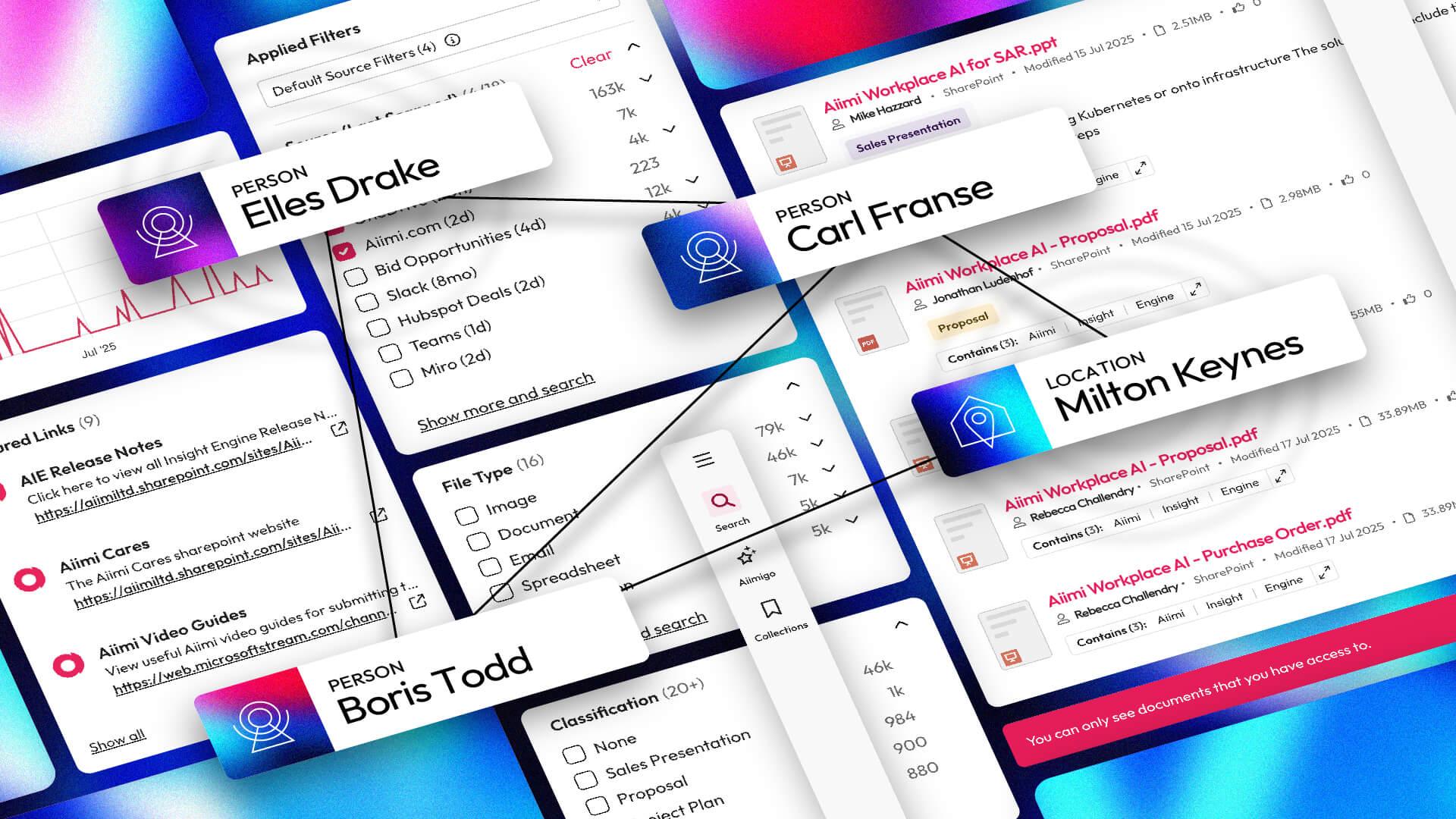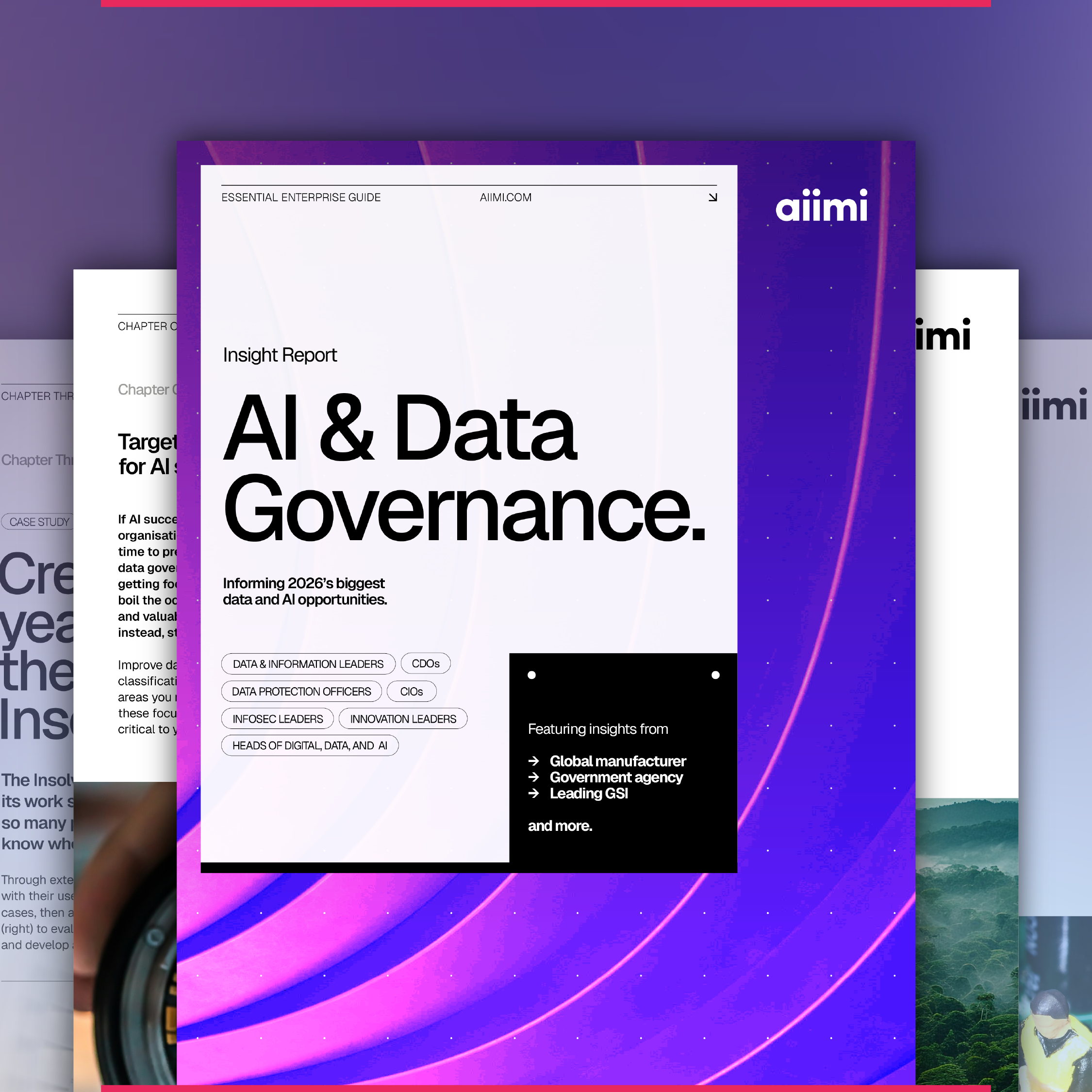Insights and guides from Aiimi.
Discover the latest data and AI insights, opinions, and news from our experts, all in one place.

Browse by topic.
Aiimi NewsArtificial IntelligenceData GovernanceData Science & EngineeringDigitalRisk & ComplianceStrategy
Browse by resource type.
Explore our in-depth guides and industry reports, all in one place.
No form fills or personal information required. Just fast, free access to the expert insights you need.

Browse all resources.
Stay in the know with updates, articles, and events from Aiimi.
You may unsubscribe from these communications at any time. For information about our commitment to protecting your information, please review our Privacy Policy.

